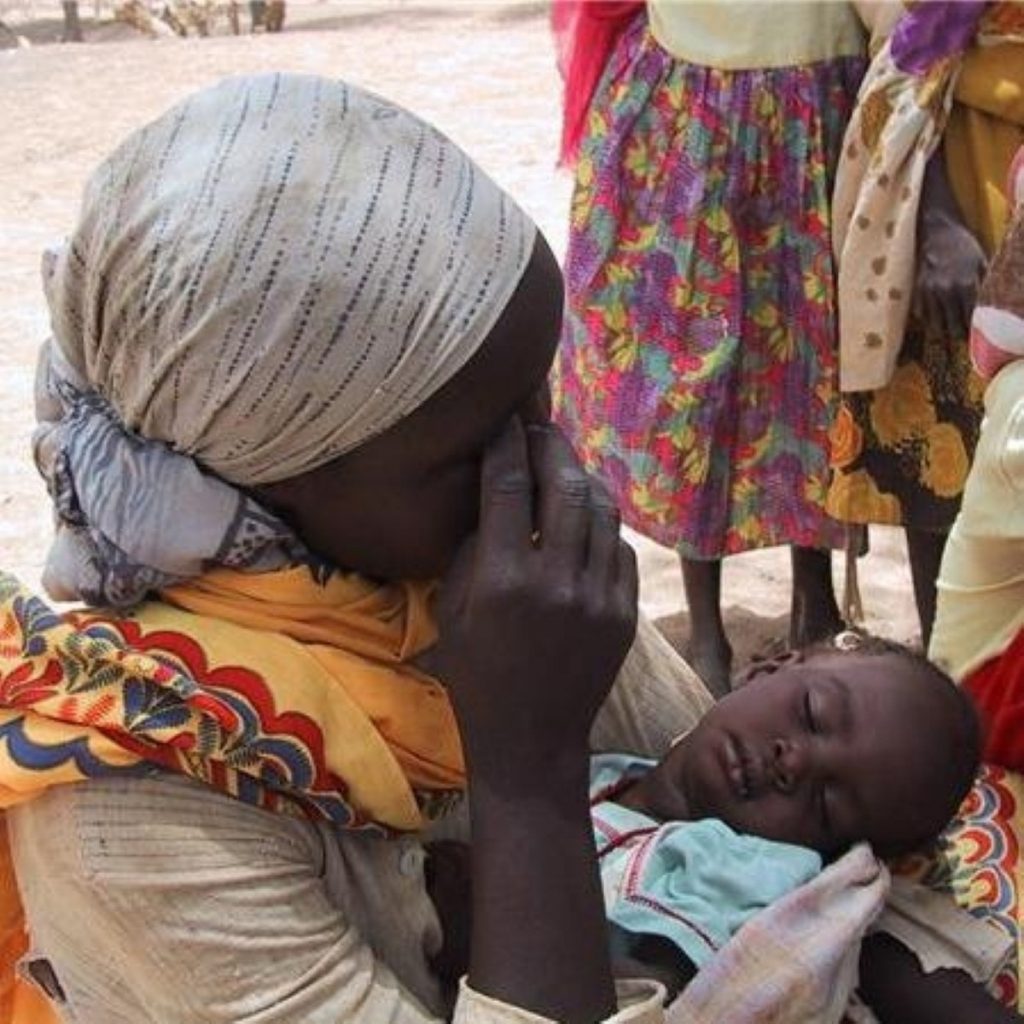UK reluctance to help Somalis ‘pushing famine closer’
The British government faces mounting frustration over its failure to quickly pledge naval support for aid shipments to Somalia.
With Dutch naval support ending on June 28th, the UN’s World Food Programme is warning the gap in protection for food shipments is contributing to a growing risk of famine in the Horn of Africa country.
Country director Peter Goossens told reporters on Friday he only has around five to six weeks’ supplies left on the ground and has expressed frustration with western states’ reluctance to immediately provide naval backing for his supply lines.
With drought, a succession of poor or failed harvests and rising food and fuel prices Somalia is now at a “dire crossroads”, he warned.


Mr Goossens said: “If sufficient food and other humanitarian assistance cannot be scaled up in the coming months, parts of the country could well be in the grips of disaster similar to the 1992/3 famine when hundreds of thousands of people perished.”
Villages are eating wild tubers usually eaten by wild animals while rations for families with a malnourished child are being shared with neighbours, the WFP says.
It has approached a range of countries including Britain, Sweden and South Africa for assistance from their respective navies. While many, including the UK, have said they are considering the situation no future naval support has been pledged.
The second quarter of 2008 saw eight ships hijacked for ransom and a further eight, including four tankers, coming under attack from pirates.
No attacks have been registered since June 28th but the WFP says ships are not prepared to make the dangerous run into Somalia without naval support.
A Foreign Office spokesperson told politics.co.uk: “The UK is active within the EU in considering all the options available in enhancing security for WFP shipments.
“We have received a request from the WFP that the UK provide naval escorts to WFP ships. We are considering that request in the context of existing commitments.”
The Ministry of Defence added that Britain “has a longstanding commitment to maritime security in the region”, explaining: “The question of any UK naval escorts for the World Food Programme will be considered in this context.”
Only one 8,000 tonne vessel has agreed to undertake a shipment and this was due to arrive in Mogadishu yesterday, Mr Goossens explained. As most ships come under attack when they are on the return trip travelling empty this vessel remains at risk.
Chris Trelawney of the International Maritime Organisation told politics.co.uk the strategic importance of maritime security in the region should not be underestimated.
“With the interlinking of global trade no government can say ‘it’s not our problem’,” he argued. Yet despite this it is not clear who will provide the naval vessels to protect the supply ships.
Somalia has been without a functioning central government since 1991 and has seen an escalation of violence in the wake of Ethiopian military intervention in late 2006. Five WFP-contracted transport workers have been killed by gunmen so far this year, while two NGO workers were shot, one fatally, on July 11th alone.
Although the first steps towards implementing the Djibouti agreement – which will return Somalia to self-governance – have been successful, the immediate impacts of current insecurity remain.
“In the current crisis famine is a real possibility,” Mr Goossens said. “It depends a little bit on what happens with the rains, but if they also fail I’m sure we will see a nightmarish situation.”
Private mercenaries may offer a solution but this has “scary possibilities”, Mr Goossens says. He is fearful of negative publicity as seen in recent years in Iraq.
“This is the last, last, last resort,” he said. “If the navy escorts don’t come back and no other decent-sized vessels offer to help, then maybe I will get to that point. There is no deadline, but it’s getting shorter.”












